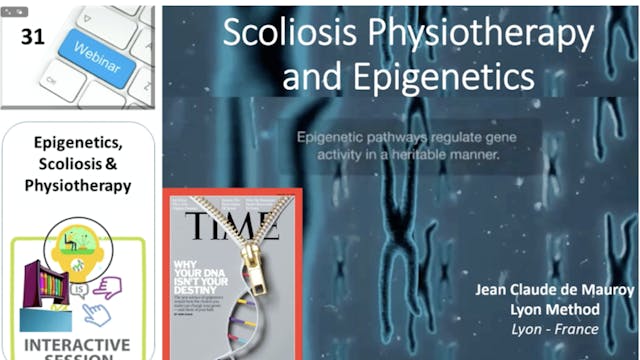Lyon Method: Epigenetics, Scoliosis & Physio
Epigenetics Scoliosis & Physiotherapy with Dr. Jean-Claude de Mauroy
Editorial title: Don't always blame your genes! Take control of your scoliosis
Contrary to what science and medicine believed about genetics until 5 years ago, genetic abnormalities in scoliosis account for only 15% of the scoliotic phenotype. 85% is linked to epigenetics. Epigenetics is the modulation of gene expression. The body has the ability to switch our genes on and off. Epigenetic mechanisms play an important role in regulating the transcription of genes coding for proteins involved in numerous signalling pathways, including the proliferation and differentiation of osteoblasts, osteoclasts and mesenchymal stem cells derived from the spinal cord. Epigenetic factors include DNA methylation, histone modification, non-coding RNAs and microRNAs. These epigenetic factors are correlated with the severity of scoliosis.
Epigenetics responds to environmental influences. By introducing positive stimulation, we can create positive changes. Environmental influences include everything our bodies are exposed to. From diet to exercise, from thoughts to emotions or even the amount of sunlight we are exposed to.
The Lyon method devotes a large part of its exercises to epigenetics through the stimulation of the postural system and the practice of sport. The "24 hours for the back" means that the environment must be adapted to scoliosis. 200 years of experience in scoliosis have made it possible to specify the frequency, mode, intensity and duration of exercises.
-
SSOL-Lyon Method Certification: Tutorial 31 Epigenetics, Scoliosis & Physio

